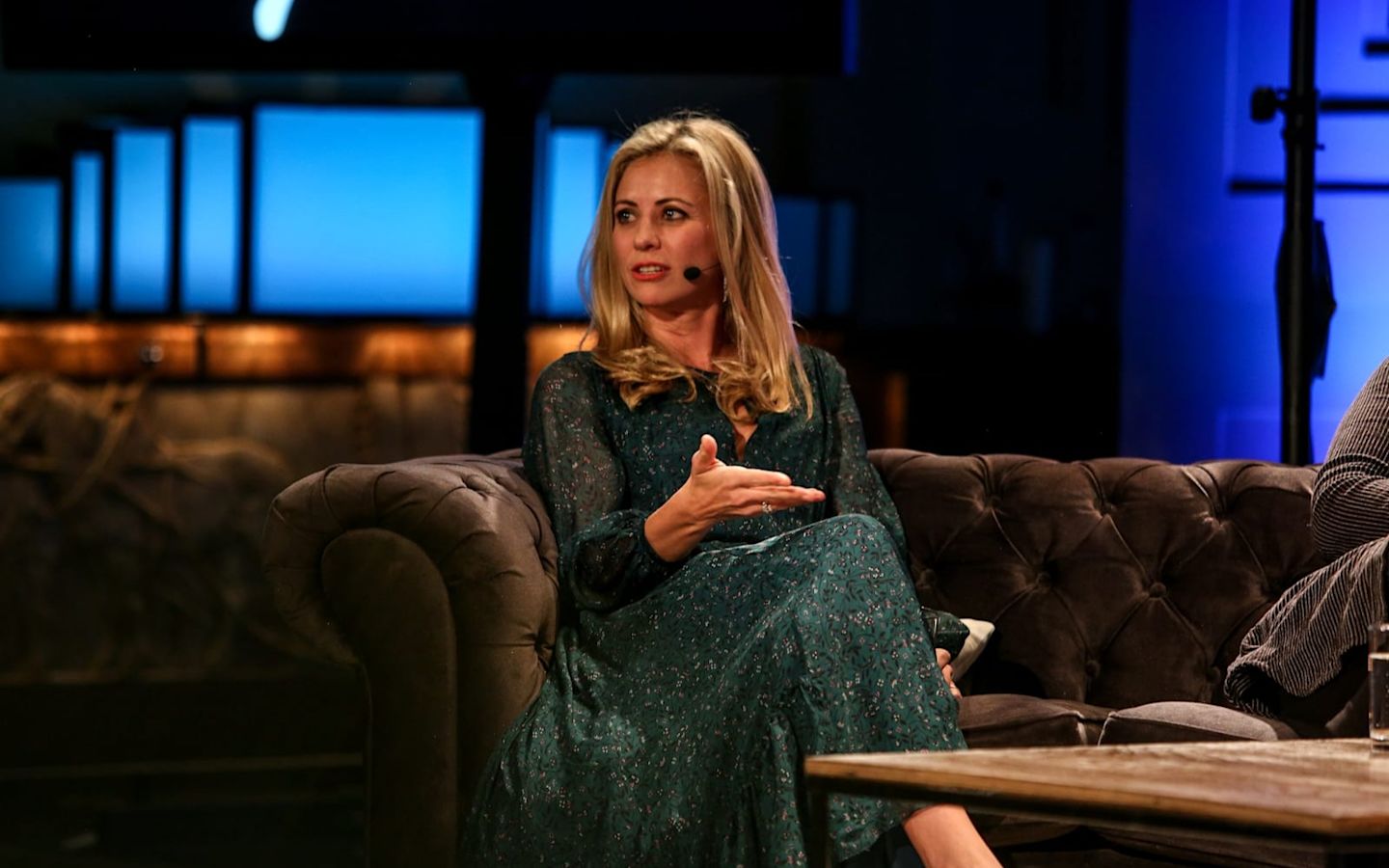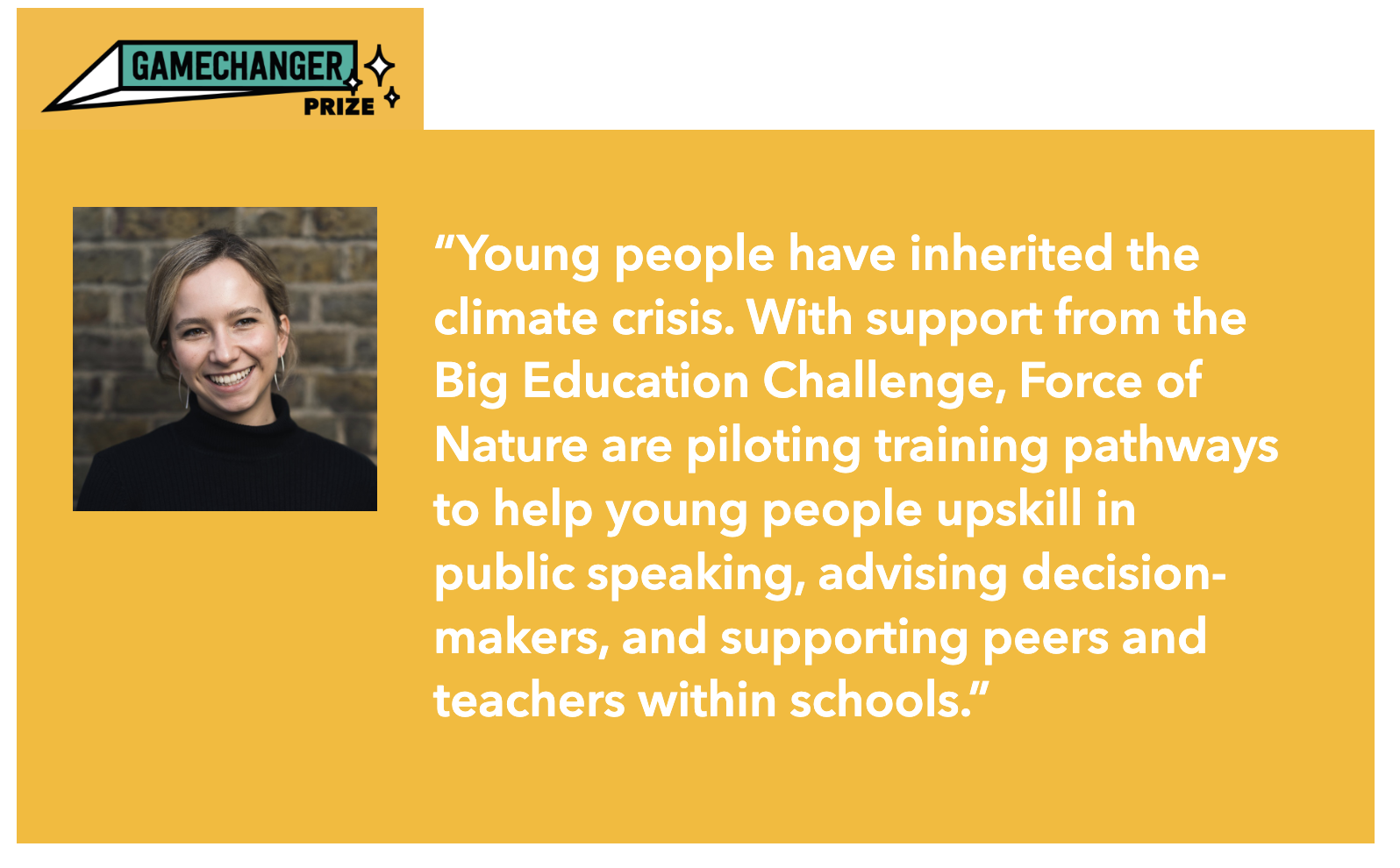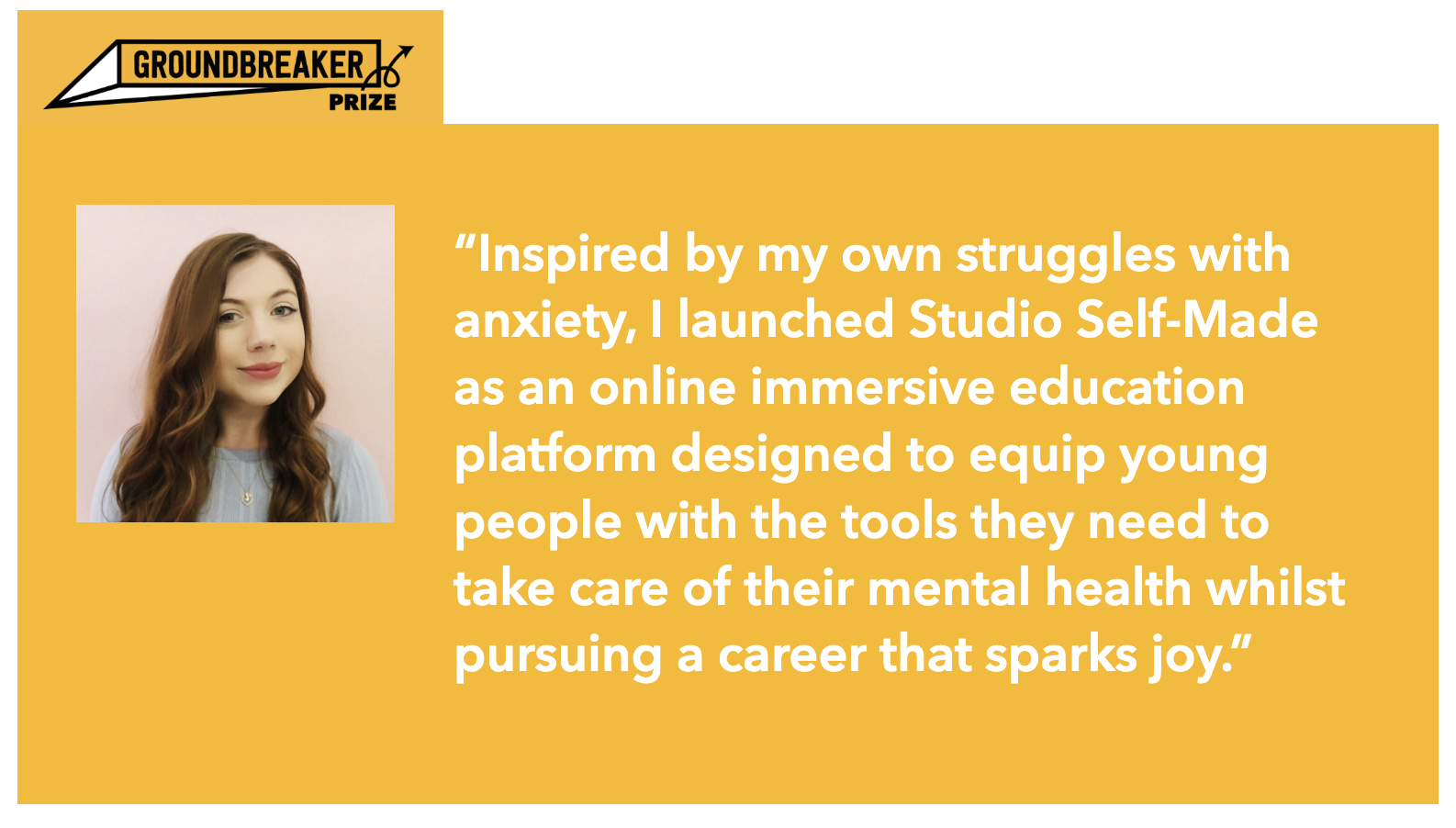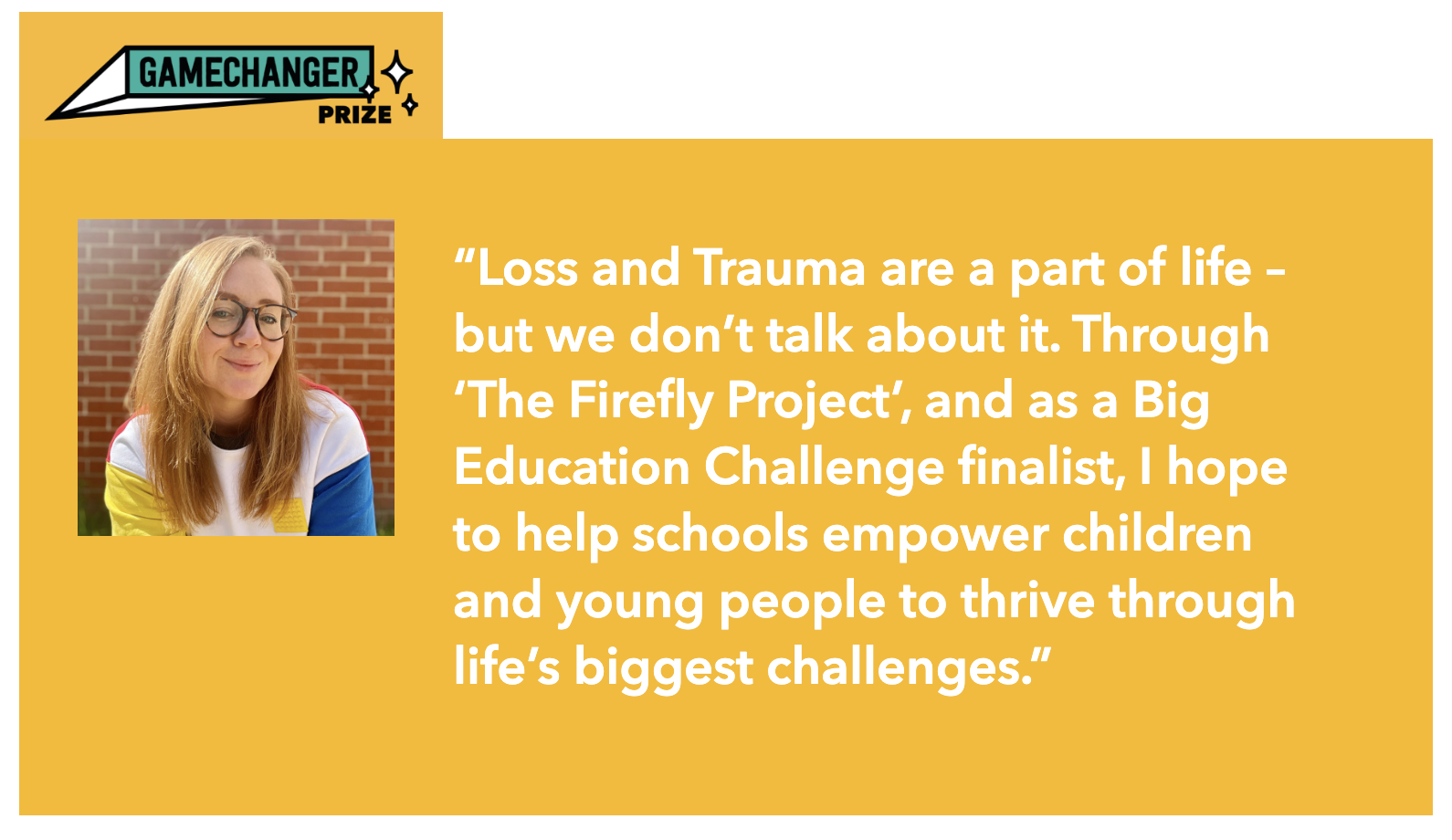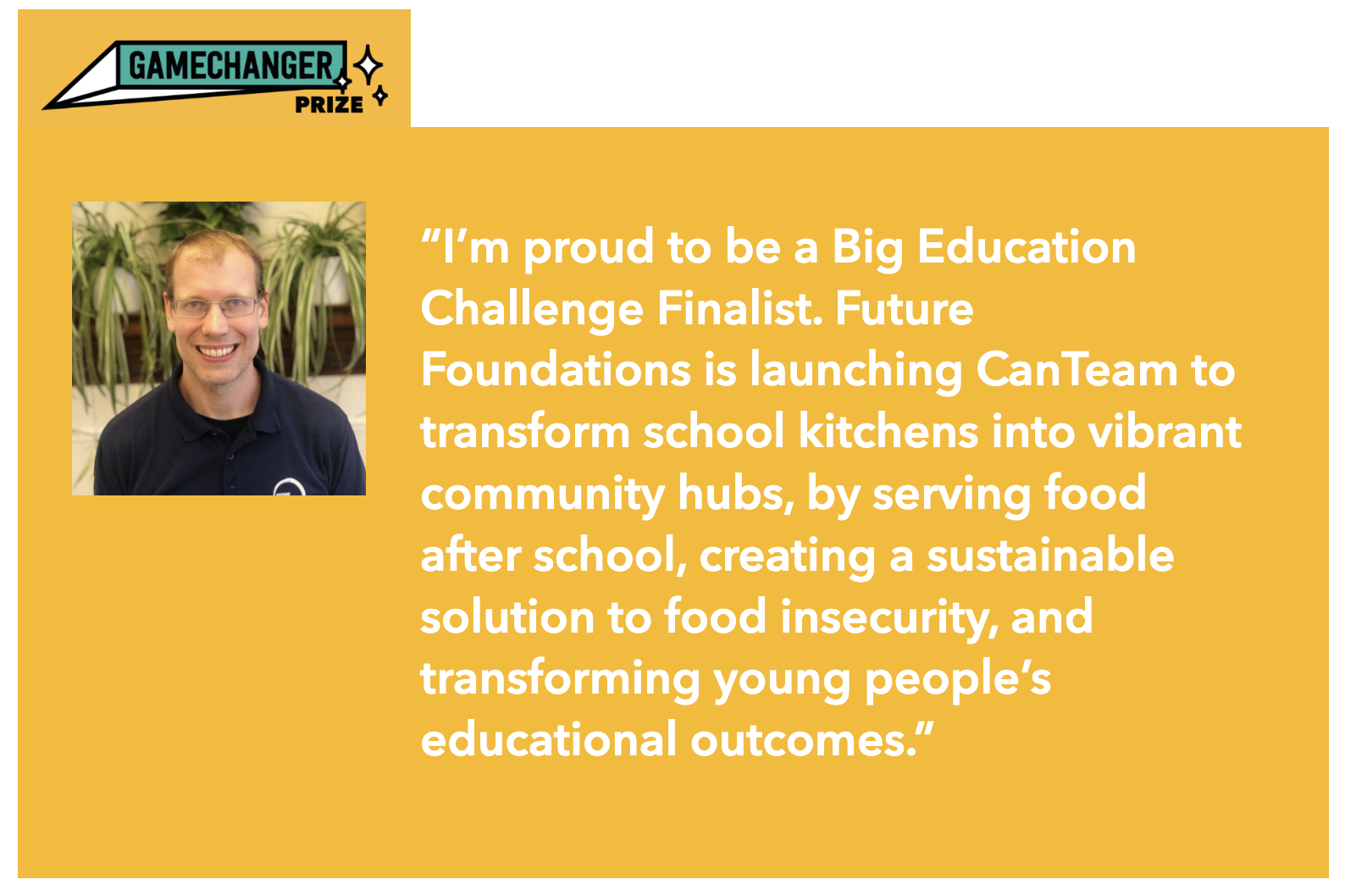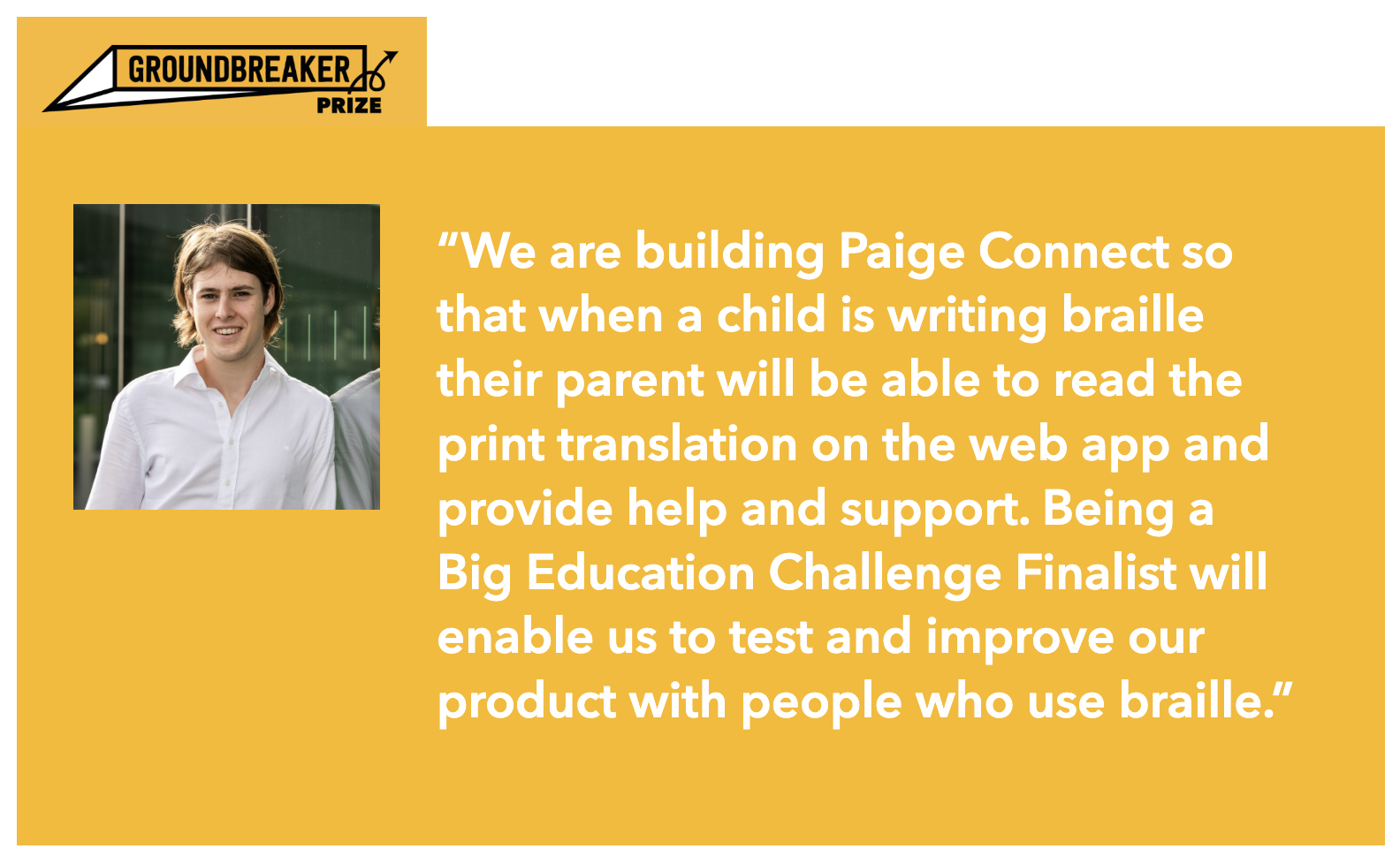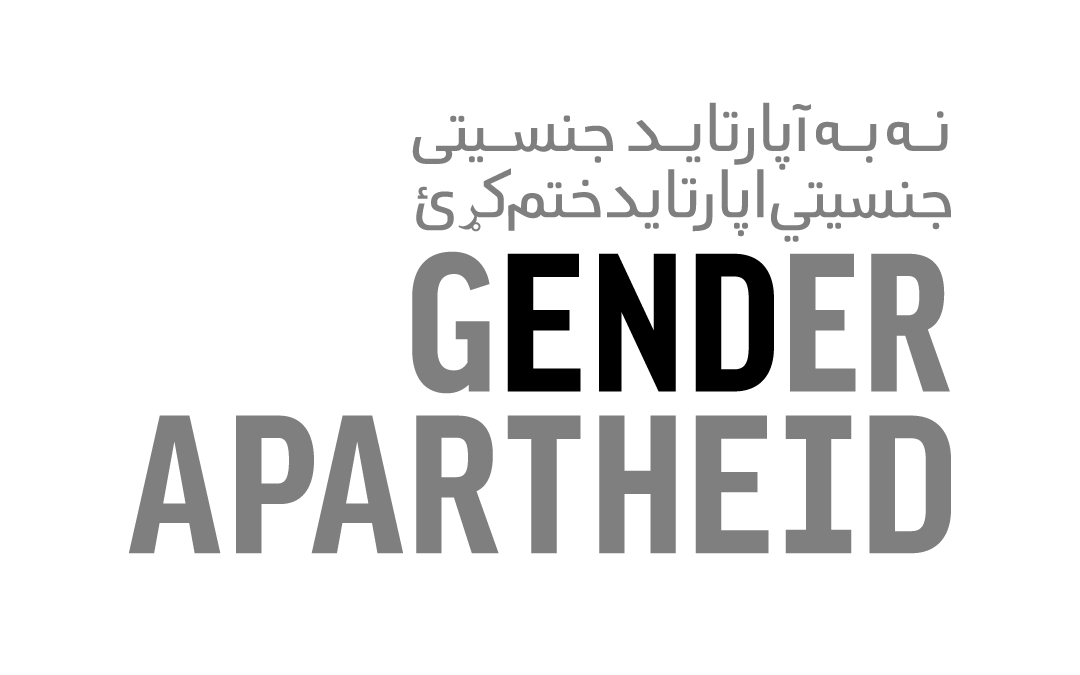Getting to the heart of the biggest education challenges
The ‘one size fits all’ approach to education is failing too many young people. Research we conducted at Big Change found that seven in 10 young people agreed with this statement. The research also showed that 74% of 18–25 year olds believe the education system doesn’t do enough to support mental health, and 65% said the same about special education needs.
Over the past 10 years at Big Change, we have backed over 40 innovative education projects that are impacting the lives of nearly eight million young people across the UK. To grow this impact even further, we launched a £1,000,000 prize fund earlier this year called the Big Education Challenge. The challenge was created to support and fund change-makers whose bold ideas could solve the very biggest education challenges, and drive innovation all throughout the system. The finalists will also take part in a tailored learning and support programme created by Big Change in partnership with The Young Foundation – to equip them with the tools they need to develop their ideas. Brilliant.
From hundreds of applicants, we found 15 finalists with ideas that focus on everything from neurodiversity to gender and identity, disability, racism, climate anxiety, food poverty, loss and trauma, creativity and leadership. It’s also brilliant to see that 13 of the 15 finalists are under the age of 25 – which is important because we need the voices and experiences of young people if we are to transform the system in any relevant way.
The finalist’s ideas will create both local and national impact, and will support students beyond the school gates too. Some of the ideas involve AI and digital technology, while others closely involve teachers and policymakers. The depth and breadth of the ideas are truly inspiring, so I wanted to introduce the people behind the visions to you all.
Andrew Speight: Aged 20, from Blackpool, Andrew co-created Emoco after experiencing the destructive mental health impacts of a high-pressure academic environment. The project hopes to improve mental health in schools by working with young people, teachers, parents, carers, and school leaders to co-produce a ‘white paper’ for schools to improve student wellbeing. Here’s more.
Caitlin Glover: Aged 18, from Chelmsford, Caitlin struggled at school due to dyslexia and ADHD, which she now recognises as her “superpowers”. She is creating Cognexus, an app that identifies neurodivergent traits and gives learners personalised strategies to help them succeed in education and life. Learn more.
Clover Hogan: Aged 23, from London, Clover struggled to have her concerns for the environment listened to at school. Force of Nature will address students’ climate anxiety by creating new training pathways to help young people prepare for their roles in a green economy, building their confidence, developing their skills, and helping them find the climate solutions they wish to lead. Read more.
Domonic Starkey: Aged 24, from Derbyshire, Dominic has a sibling with autism and is trained as a special education needs teaching assistant. He is creating Fidjit – an app that offers personalised digital support to young people with special educational needs. The app will provide AI-generated reporting and trend-tracking to accurately capture the child’s daily needs, plus a chat feature to support quick and easy communication between home and schools. Here’s more.
Emma Redfern: Aged 24, from Sheffield, Emma home-educated herself after leaving school because of bullying and anxiety. She developed a more creative education that suited her and has since founded Studio Self-Made, a creative online education platform that offers digital internships to enhance creative portfolios with practical work experience through a network of small businesses. Learn more.
Emmanuella Okha: Aged 22, from London, Emmanuella went unsupported through higher education, which made her rethink her approach to learning. The online hub she’s creating, called Big Mouth, will provide young people who have been excluded from mainstream education with tools to thrive. Topics covered will include everything from drama, to music, debate, and mentoring workshops designed to build employability skills while expanding aspirations and potential. Read more.
Farhad Gohar: Aged 18, from Manchester, Farhad was sent to Pakistan as a teenager after he became involved in gangs. He went on to launch Potential, which is a project looking to mentor and support young people at risk of joining gangs or facing exclusion – instead helping to develop entrepreneurship skills and create legitimate enterprises. Here’s more.
Gracie Chick: Aged 19, from Essex, Gracie was home-educated, and she begun to see herself as a small but significant part of a bigger picture. Along with collaborators, Grace is establishing Third Dimension, an organisation which will create classroom resources that allow young people to explore their common humanity and discover who they are beyond the two-dimensional labels they are often given. Learn more.
Holly Bazley: Aged 25, from London, Holly struggled at school due to dyslexia and ADHD, but became interested in the gamification of learning. She is now determined to tackle the gap in menstrual and hormonal education in schools. She co-founded Hormoneia, a game that will help young people understand their bodies and equip teachers with the knowledge and skills to better educate everyone about menstrual health. Read more.
James Bowyer: Aged 26, from Brighton, James recognises the barriers teachers face in responding to students’ individual needs. He is creating an AI-based lesson planning system, called TeachersRadar, which will reduce the workload of teachers by helping them create and adapt lesson plans based on student needs and real-time progress. Here’s more.
Jenna Maudlin: Aged 38, from Norfolk, Jenna struggled with her mental health in school when her mother was diagnosed with MS during her GCSEs. Sadly, when Jenna was 22 her mother passed away. Jenna is now a multi-award-winning designer, who has started The Firefly Project. The initiative aims to support schools to help young people understand and deal with loss and trauma, developing their social and emotional skills through design-based workshops and resources. Learn more.
Jonathan Harper: Aged 41, from Surrey, Jonathan is a father and witness to how challenging it can be for parents and carers to feed their children. To address this, Jonathan is launching CanTeam as a sustainable model to offer healthy and cost-effective meals to young people, their families, and the local community. CanTeam will create opportunities and enrich communities. Read more.
Melvin Riley: Aged 21, from Wolverhampton, Melvin faced a school system that wasn’t equipped to deal with racism. His idea, Not So Micro, is creating an anti-racism and microaggression training programme for educators, while also campaigning for policy reform to ensure that schools are held accountable for promoting racial inclusion. Here’s more.
Sergio Gosalvez: Aged 22, from London, Sergio grew up in Spain and studied Biomedical Engineering. He is now building Paige Connect, which is upgrading existing Braille technology, so parents and carers will be able read the print translation through a web app. Learn more.
Sophie Koumides: Aged 25, from Manchester, Sophie is a performing arts graduate who founded See Her Potential to empower young girls by addressing gender stereotypes, discrimination, and harassment, through school-based interactive performance and workshops. Read more.
It’s so exciting to see these bold ideas being brought to life. The finalists are currently working through their bespoke learning programmes, which will end in November 2023. The prize winners and runners-up will be announced in January 2024. Stay up to date on the Big Education Challenge right here.
